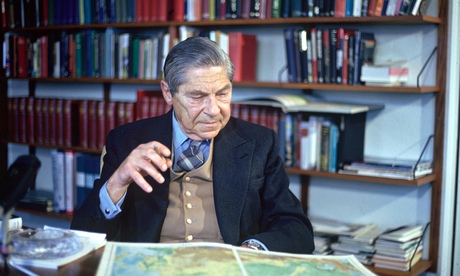
Politics seemed to involve more violence when I was growing up, or maybe children only remember the violent bits: the Brixton riot, miners clashing with police, a party conference in Brighton turned to rubble by terrorists. I was safe in suburban Finchley, in London, where the fighting was all on television. The windows once shook when an IRA bomb went off a few miles up the North Circular road, but we were never in danger.
But even without the news, I learned early that politics can kill. Having liberal South African émigré parents meant the origins and evils of apartheid were dinner table conversation. None of this should be taken as a claim to intellectual precocity. If at any point in the 1980s you’d asked me about the nature of power, I’d have replied with reference to Star Wars, the Force and Jedi mind tricks.
When I went to university I was only tangentially interested in politics. Then, during the summer holiday at the end of the first year, driving across France, I borrowed Arthur Koestler’s Darkness at Noon from a friend. He was studying philosophy and had been ordered to read it. I was studying languages and was avoiding some untranslated set text.
I had never been gripped by anything so theoretical before. The story is sparse. Rubashov, an ageing first-generation revolutionary, is imprisoned and interrogated by an ambitious thug from the steelier, younger generation. Execution is certain. Pacing his cell, Rubashov recalls his past work for the party abroad, manipulating and ultimately destroying idealistic but dispensable foreign communist agents. He composes a tract on “the relative maturity of the masses” which submerges his personal dilemma – to die in silence or serve the party one last time by submitting to a show trial – in a sweeping quasi-Marxist rumination on history and destiny. The drama is not contained in the action. What excited 19-year-old me was the guided tour of a totalitarian mind.
The easiest interpretation of political violence is that some people are so overwhelmed with belief in their cause that they decide anything is expedient to its service. This has an emotional element and a rational one – the calculated downgrading of the individual life in pursuit of a collective good. That process is easy to comprehend when observed in other people, but Koestler does something else. He draws the reader into the interior monologue of fundamentalist rationalism as it spirals towards a perverse logic of self-destruction. Rubashov knows that the charges against him are fabricated yet, in the pseudo-science of revolutionary ethics, he decides they are also just. He accepts that his liberal doubts are contaminating the cause.
I remember experiencing the end of the book as a chilling void. The story is told in the third person, but it feels like a first-person account of dying. Koestler had once been sentenced to execution and reprieved, so he had some insight into the abyss. But it isn’t the eradication of life that shocks. It is the moral oblivion of a conscience repressed by mechanical reasoning. It is the realisation that every aspiration to contain human experience in a unified theory, every urge to order mankind in neat rows, every codified system of belief that despises dissent, involves some inward violence. (The outward violence is better documented.) It means shutting down parts of the self that can bear to live with contradiction, which is the beginning of the end of compassion.
I subsequently learned that Koestler was a nasty piece of work, a misogynist bully and, according to one biography, a rapist. I then had to disentangle admiration for the work from revulsion at the craftsman – a process that will be depressingly familiar to anyone who has delved into the lives of once favourite writers, painters and musicians. In the summer of 1993 I was spared that conflict.
From Koestler I went on to read Hannah Arendt’s Banality of Evil, an account of the 1961-62 trial in Jerusalem of Adolf Eichmann, SS officer, bureaucrat and overseer of the Final Solution. Arendt demonstrates how extraordinary atrocity can be the aggregate of ordinary people doing what feel like mundane tasks. Obedience is a habit. Taking the order to kill can become an act of duty as routine as ticking a box.
Having read them around the same time, I store the two books as companion volumes in my imagination (not on my shelves, which have no system). But Koestler’s fiction came as more of a revelation than Arendt’s facts. Growing up Jewish had meant routine exposure to Holocaust history. As a student, I had more to learn about the callous fundamentals of militancy on the left.
I doubt I was temperamentally inclined to become a Stalinist, and I’m pretty sure neo-Nazis wouldn’t have me, but I think of that summer as an inoculation against all strains of fanatical thinking. Rubashov’s error, brilliantly exposed in the book’s breathless final pages, is a reason to embrace ambivalence; to accept the liberal proposition that two contradictory moral imperatives can exist in parallel; to be suspicious of zealots; to fear the seed of cruelty in a chanting crowd.
I suspect this is one reason why I have never been swept up in football fever. It seems to demand a surrender of judgment to the tribal collective that feels slightly sinister. The bigger reason is that I’m hopeless at football. Darkness at Noon is also a reason why I ended up expressing my interest in politics from the detached perspective of a journalist instead of becoming an activist or a politician. Or maybe I just knew I’d be as bad at politics as I am at football.
Twitter: @RafaelBehr

